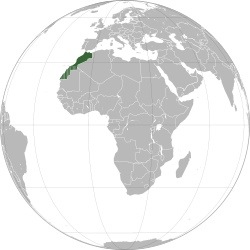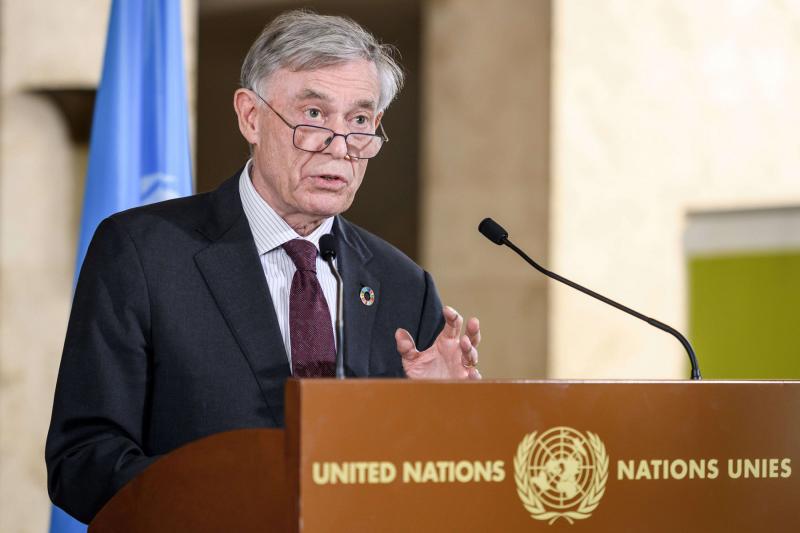By: Said Temsamani

In the ongoing dispute between Morocco and the Polisario over the future of the so-called “Western Sahara,” many progressive intellectuals and leaders—both Western and African—treat the Polisario as an underdog maltreated by land-grabbing Morocco. They cite international law and depict Morocco as an illegitimate invader supported by its all-powerful allies, the U.S. and France.
For Morocco’s critics, the history of the conflict begins in 1975. It was at that time that the Green March was launched by the late Hassan II, Morocco’s southern provinces were christened the “Western Sahara” by the UN, and the Polisario was created. Yet if these writers expanded their lenses and went further back in time, they’d find out that 1975 was merely the culmination of decades of Moroccan resistance to French and Spanish encroachments on Moroccan sovereignty and the Moroccan people’s tireless struggle to reclaim their territories.
Morocco
For the problem of Morocco began precisely when themodus vivendi in North Africa was disrupted by the French occupation of Algiers in 1830. For supporting Algeria’s anti-colonialist leader, Amir Abdelkader (who proclaimed his allegiance to the Moroccan sultan, Moulay Abderrahmane), Morocco found itself fighting a much stronger French army at Isly and was forced to ratify the infamous Treaty of Lalla Maghnia in 1845, thereby ceding a lot of land to French Algeria.
Through forced negotiations and under the coercive power of the gun, the French gradually annexed more territory that had been, culturally and ethnically, an integral part of Morocco. The Sahrawis who fought Spanish occupation in what some call the Western Sahara were tied by bonds of allegiance (bay’a) to the sultan. And so it is no wonder when Morocco got its independence in 1956, it refused to accept the so-called Cairo Declaration in 1964 (binding nations to accept the borders they inherited from colonial regimes), for that would have meant relinquishing the struggle for independence.
Algeria, meanwhile, quickly seized this opportunity to keep its newly created country, bequeathed to it by the French at the expense of other Sahrawi people and Morocco. (Ironically, it was no other than Algeria’s actual president, Abdelaziz Bouteflika, then foreign minister, who defended this Organization of African Unity’s principle based the old Roman law concept of uti posseditis.)
But Morocco had existed as a sovereign state for centuries. Most of its dynasties originated from the Sahara—the Almoravids, who founded Marrakech and made it the capital of their far—flung empire, were from that disputed region, most likely from Mauritania. The ties with the Sahara, all the way to the Senegal, rose and ebbed with events in history; but, by the time the French and Spaniards started their expansionist designs on the region, most people north of Senegal and the Algerian Sahara paid allegiance to the Moroccan sultan and conducted Friday prayers in his name. These were the markers of sovereignty in pre-colonial Muslim societies, not the precise territorial boundaries that European states had to establish to sort out their own feuds.
European concepts of sovereignty and Islamic ones were quite different, which is why I call those who champion a simplistic approach to international law Eurocentric. They show no interest in Morocco’s pre-colonial past. It’s as if that history doesn’t count for them.
If Morocco refused to accept a European juridical principle at the basis of the Organization of African Unity’s Charter, it was because, unlike most signatories at the table, Morocco had long existed as a sovereign state, one that had dealt with European powers, such as England and France, on equal terms in the 16th, 17th and 18th centuries. Pick up any historical atlas of Africa and you could see this for yourself: Unlike the rest of the continent, Morocco has always lived within geographical boundaries that set the country apart. True, such boundaries at times reached eastward into present-day Libya—let alone Algeria—northward into Spain, and southward beyond Mauritania; but Morocco is not claiming such countries back—it only seeks to reunite people who had expressed their attachment to Moroccan sultans in the immediate pre-colonial period. It is part of the modern process of decolonization—no more, no less.
Even international law, as the scholar George Joffé noted in an article that is yet to be surpassed in its historical depth and probity, doesn’t condone the dismemberment of a people or nation. And for good reason. If every region were to seek its independence through a concocted process of self-determination, then the world would disintegrate into utter chaos. Spain has refused to let go of the Basque region or Catalonia, even though these two autonomous regions have stronger claims to independence than the Polisario (wasn’t their Secretary General, Mohammed Abdelaziz, born in Marrakech?) could ever claim.
So why this sympathy for a “Western Sahara” that never existed, a vast stretch of desert the size of Colorado with no arable land at all, and whose borders were delineated by a Franco-Spanish team between 1956 and 1958? For some, it may seem the “progressive” thing to do, and for others, it’s part of a strategic ploy to maintain a precarious balance of power in the region. Either way, Morocco’s adversaries rely on flimsy historical justifications and a lot of colonialist philosophy (Roman law, ambiguous or contradictory provisions in international law, as Joffé indicated).
The solution that Morocco now proposes—autonomy within Morocco—is not a device to circumvent the UN-sponsored resolution; it is, in my opinion, merely the modern version of the old bay’a principle that bonded the Sahrawis with the rest of the country. Because the sultan and his army couldn’t be everywhere at once, substantial autonomy was the de facto solution to government in pre-colonial times. As long as people paid taxes and recognized the sultan in their prayers, they were left to manage their affairs as they saw fit.
History has recorded many instances in which French and Spanish colonial administrators attest to Morocco’s right to lands that have since been expropriated. After independence, Morocco ceded most of them, including Tindouf (which has, ironically, become the headquarters of the Polisario movement), to Algeria. Yet that was not enough for Morocco’s detractors. They want more. Spain even invaded a rock in the Mediterranean in 2002 to prov e the point.
Few countries can match Morocco’s record in seeking a peaceful solution to a problem that should not have existed in the first place. But the Sahara is simply hard to give up. The Sahrawis, like the Amazighs, or Arabs, are part of a mosaic of cultures and traditions that have always been united under the leadership and prestige of the sultan. Morocco has been a multicultural society from its very inception, but it has never surrendered to colonialism, whether it appeared in the form of a gun or wrapped itself in legal language designed to deceive and erase historical realities. For history is, above all, memory, and the memory of Moroccans is stronger than a few lines drawn in the sand by pumped up colonialists.
To insist that the Sahara is Moroccan is, contrary to many so-called liberal and leftist claims, to correct an historical injustice and roll back the legacy of colonialism. Self-determination is a beautiful U.S.-inspired concept whose goal was to give a voice to non-Western people slaving under European colonialism; it wasn’t meant to liberate such countries into fragmented, mutilated entities. To do so would be to add more trouble to a region that needs peace and development.
2
About the author:
Said Temsamani
Said Temsamani is a Moroccan political observer and consultant, who follows events in his country and across North Africa. He is a Senior Fellow, Merdian International Center Washington DC, Founder and CEO “Public Initiatives” Consulting firm and Former Senior Political Advisor, US Embassy Rabat, Morocco.



